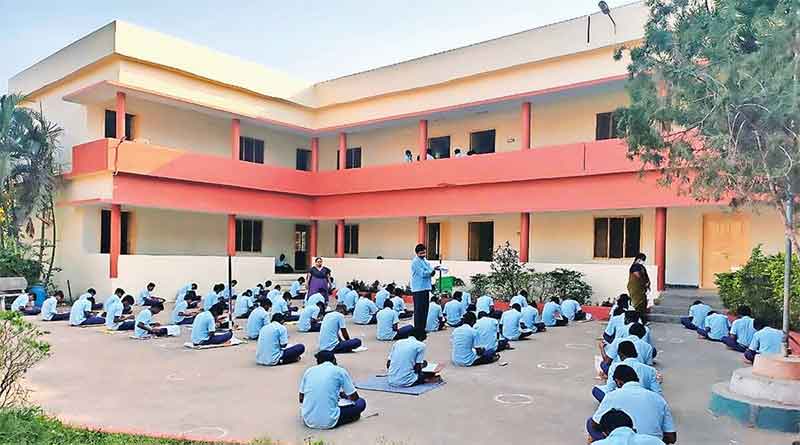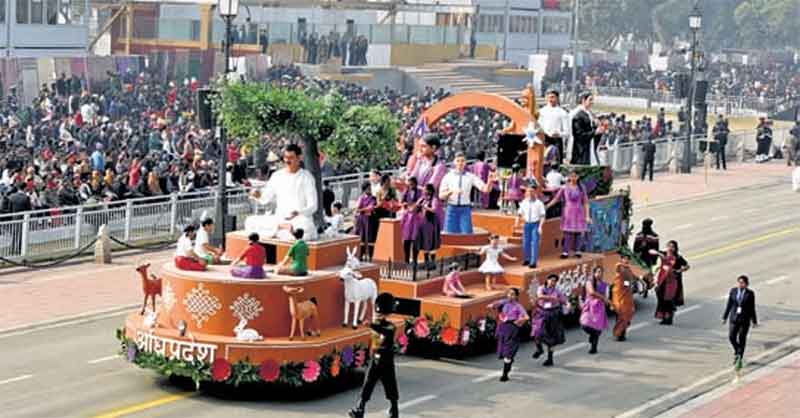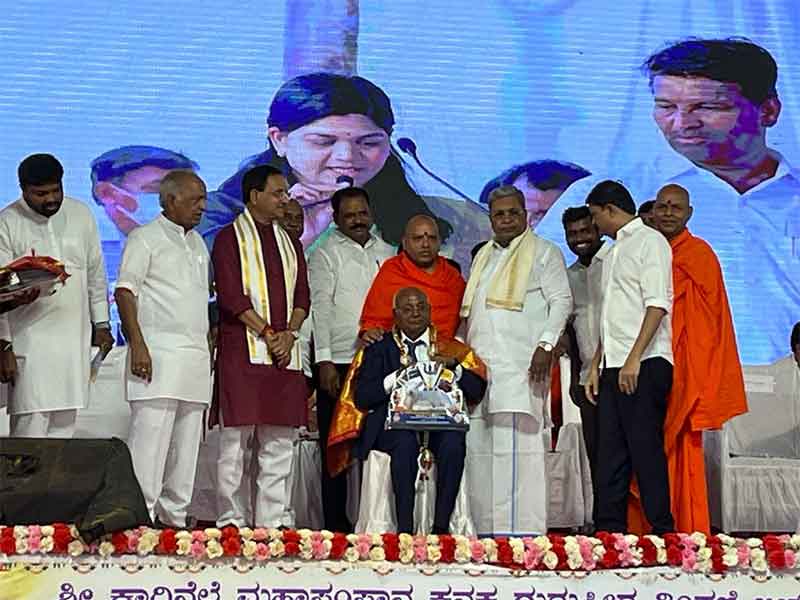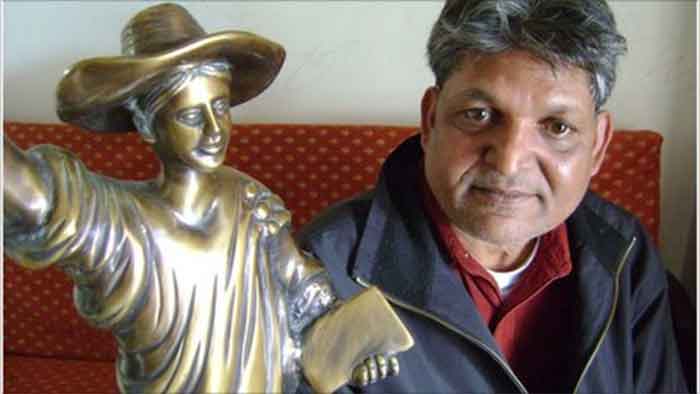
October 5th is International Teachers Day. It is also Indian English Day. English language education has a history of 205 years in India.
Incidentally October 5th is also my 70th birthday. My thirty years campaign for English medium education for poor children in the Government schools has come to a meaningful stage.
William Carey and Raja Ramohan Roy started the first English medium school in Kolkata (then Calcutta) in 1817. By 2022 where the world stands relieved with medical science, mainly developed using the English language as global communicator, has saved the world from devastation. If science and English were not to co-exist the world would have been a burial ground because of Corona.
So far in India two State Governments, Andhra Pradesh and Telangana have made English medium teaching compulsory in all the state Government schools. This is the beginning of an educational revolution in India. Already Nagaland has been teaching only in English medium in all the state Government schools for quite a long time. Most state Governments have started teaching English as a compulsory subject from class one in the recent past. Kashmir has started such compulsory English teaching from class one as a subject for a long time. The Aam Aadmi Party in Delhi upscaled English teaching in all state run schools.
This apart, there are thousands of private English medium schools all over India.
It is a known fact that the Rastriya Swayamsevak Sangh (RSS) and the Bharatiya Janata Party (BJP) are opposed to English medium education in Government schools. At the same time they are not opposed to private schools that teach in English medium with a design to keep the poor out of English education.
They know that English language education takes people out of poverty, conservatism and superstition.
After the BJP/RSS came to power in 2014 the private sector has opened more costly English medium schools, colleges and universities for the rich. But the central Government has been insisting that the poor–as they mostly are from Shudra/SC/STs–to study in regional languages. That is a varna dharma language policy.
MY ENCOUNTER WITH SOIL AND ENGLISH
In my 70 years of life I consciously interacted with this soil, animals, crops ever since I was five. In other words for 65 years I lived a conscious life on this soil, leaving five years of pure childhood. As a child I played in this land’s dust, mud, among lambs, calves of buffalos and cows. I also ate mud or dust as many children in Indian villages do.
In my childhood my caste people were speaking to humans and animals in a language called Kuruma Bhasha, which had its origins in Kannada Kuruba Bhasha. Very few people understood that language. It had no script. My total community was illiterate and was speaking a scriptless language within themselves. Other villagers did not understand that language.
All around my small village there were Lambada tribal hamlets. They were speaking Gor Boli (Lambadi Bhasha). Within the village there were few Muslim houses. Their children were speaking Urdu. Many castes which were around agrarian tasks were speaking Telugu in Telangana dialect with a lot of Urdu words in it. There was hardly any communication between groups. People’s communication from language to language was broken one and symbolic.
As I grew up we shifted to Telugu from our caste language. But still we were broken people in terms of our different languages, leave alone caste. Shifting from one language to another was a difficult journey.
In the last 65 years of my conscious and communicative life a slow and silent revolution took place. English has come into all houses, literate, illiterate, rural or urban, slowly. That began to bring a change.
The name Rice replaced what we called biyyam, Motton replaced, mansamu, Fish replaced chepalu, Chicken replaced kodi kura, Vegetable replaced koora kayalu in all communities in the deeper Andhra Pradesh and Telangana villages and hamlets.
Not only that Water replaced neellu, Milk replaced paalu, Salt replaced uppu. Oil replaced noone. Shirt replaced angi. Pant replaced laagu. Labour replaced cooli.Many such English words and names of commodities have become common. Main functions like pendli in Telugu is Marriage now.
The anti-English pundits are crying about Mammi replacing Amma. Dady replacing Nanna. They are blissfully ignorant about all markets even in villages being full of English words and names. Not just in Telugu region but all over India. The English words have replaced similar names and words of day to day use for commodities. Slowly but surely Indian life is getting anglicized.
My childhood memory of linguistic culture that could not communicate with one another changed now quite drastically. My childhood language Kuruma Bhasha died irretrievably. In the villages, towns and cities the English words replaced all their so called mother tongue words among all sections of people.
For Telugu, Urdu or Lambadi language speaking people English words connected with their daily used food items names and new technologies. The newly coming English words into their (not language) life repositioned their future.
As of now few hundred English words are known to every villager, male or female.
Today the same people are using machines that speak English with English names called Cell Phone. There are no words for Cell and Phone in their so-called mother tongue. Regional TV channels use 30 to 40 percent English words and sentences. Morning news, Evening news, Burning topic, Gun shot, Big fight, Big Debate, News Express and so on are very common on so called Telugu TV screens. It could be true of other language TV channels. Those channels that use only regional languages have no viewers.
THE HISTORY OF LANGUAGE CHANGE
The process of English names and words entering into our families, villages and cities did not start recently. It started a long time back.
in my childhood in the 1950s they found new English words like Bus and Train in the villages, as they just occasionally started travelling in them. Along with those names machines they also learnt the words like Ticket and Conductor. Several English words, names of instruments, machines have come into their life year after year. This happened in every state, in every region–tribal or non-tribal.
I am not at all sad that my early childhood kuruma bhasha died. I was happy when I started speaking Telugu, with many Urdu words, as my village was located in the former Nizam state, which could be understood by more people in the village or in the nearby town.
Now slowly but surely Telugu is being replaced by English words in most communications. As that was happening I was becoming happier. Because with a word or name usage without speaking in a grammared language more people were communicating with each other. The village production language was never grammar centred. It was/is communication centred. The English words expanded their communication range and circle.
In my very lifetime my villagers started engaging with machines that have only English names; their parts were also named in English. For example in the early 1960s a cycle with the name Cycle came into their life; chain was only Chain; handles were only Handles. Current came to their village with the name Current only. Oil engine came only with the name Oil Engine. All, mostly illiterate, people understood their role and functions with those names only.
Along with oil engines came pipes, tubes and so on. By the late 1960s Current Motors came along with several interconnected instruments only with English names into villages. All these English words and names of machines, instruments were used by farmers totally disconnected with one another working under the sky all day. Neither Sanskrit nor their local language connected them with day to day life changing new vocabulary. Neither RSS nor other mother tongue pandits could stop spreading English in their fields, homes. For example, along with the current bulb, wire, swich kind of names and words in English entered their own homes to light their dark houses, they too loved that language to live a better life.
This revolutionary replacement of English words of all language speakers happened among all ideological families. Whether the RSS/BJP or Congress or Communist or regional parties supported or not the language revolution did not stop. This replacement happened among Hindus, Muslims, Christians, Sikhs, Buddhists, Parsese and so on. This revolution could not be avoided by religious practices or conservatism or communalism. Market with English words became a master of change.
I could see that. Neighbours who could not understand each other’s language in villages began to understand better after the English words connected them to the market.
The village people with English words became Indians. English made them nationalist. Earlier they were disconnected locals. Across India people understood those words and names. Suddenly communities living in small language clusters without any communication with each other, became Indian in understanding the names and functions of the technologies in English, grammar or no grammar. No other language of regions–including Hindi–would have done that.
Unless a language has a close link to the technologies at the time of their discovery the relationship between that technology and the language that tells about that technology would not get communicated to the user. English and modern science are twins. Hence India cannot become a scientifically advanced nation without all the productive masses knowing English better than what they do now.
However, English has come to them over the last sixty five years as part of their market relations, not with systematic education. All this happened in the post-colonial period. But the Dwija elite acquired English during the colonial period because of private English medium education.
My realization that English would liberate the caste-class oppressed masses did not come from my exposure to Oxford, Cambridge or Harvard education or intellectuals who got imported from there. As I have shown above, my realization came from changes that the English words and names of the new technologies brought in the Indian village life right from my childhood.
Now the whole world is shifting to English language communication. Former colonies of French and Portuguese are now shifting their education system to English. China that was opposed to English is investing hugely on English education of their children and youth.
The the private English educated rich in India want to deceive the masses even in this age wherein very advanced technology and communication are deeply linked with English. English education gives hope to poor mothers when their daughters and sons get that. In this present situation of darkness all around, English education in Government school that comes free of cost, is certainly a ray of hope.
(Kancha Ilaiah Shepherd is a political theorist, social activist. His well known books are From a Shepherd Boy to An Intellectual–My Memoirs and Untouchable God)















































